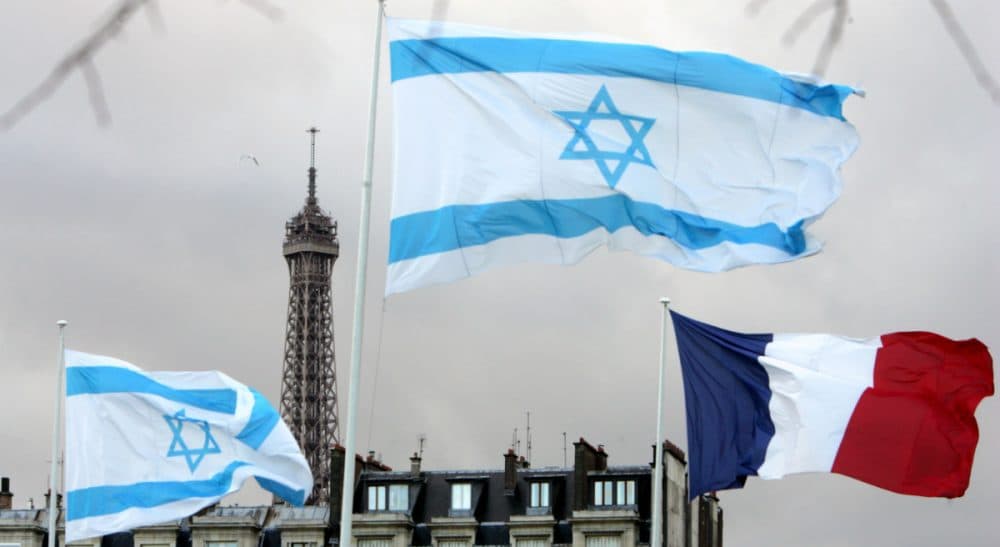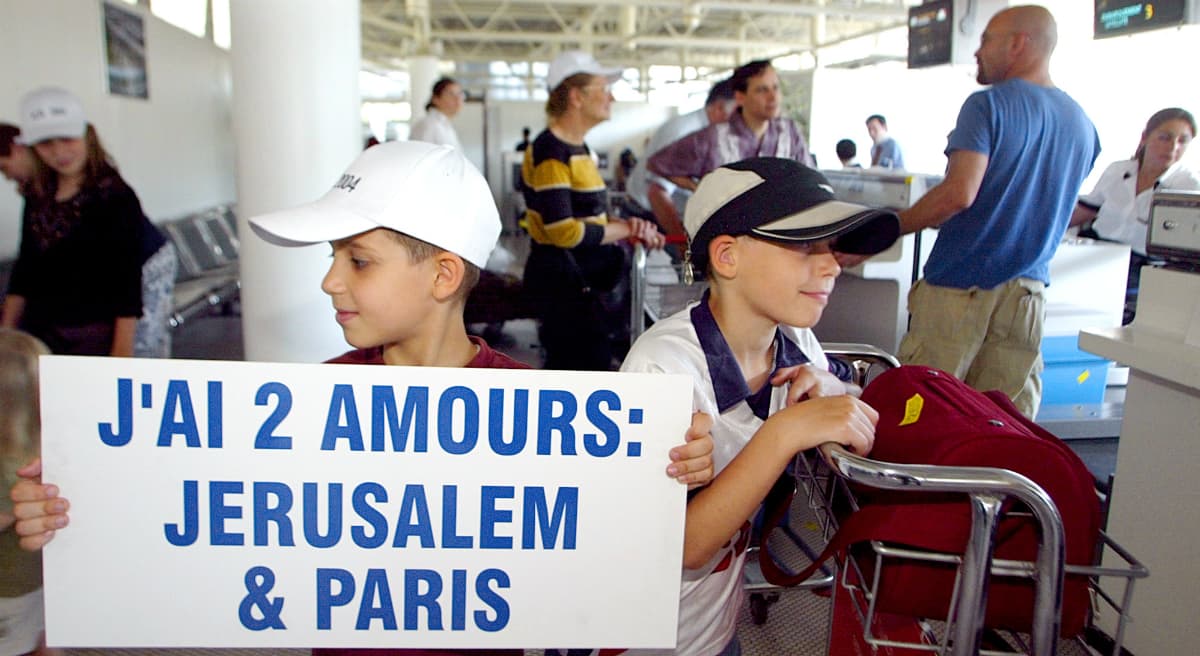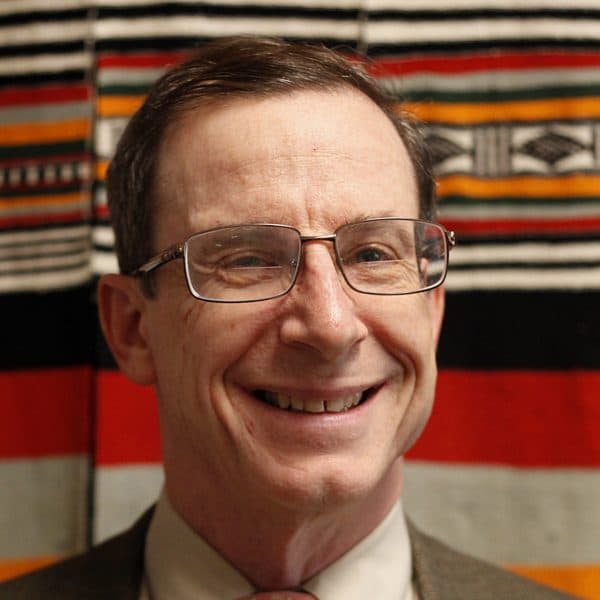Advertisement
Then And Now: France, The French Language And The Holy Land

**A note from the editors: Today, Cognoscenti offers two angles on the relationship between France and Israel: This one, by William F. S. Miles, asks whether, given a surge in numbers of French Jewish émigrés in Israel, the French language could reprise its historic role in the Holy Land. The other, by Sharon Bially, considers the pull that Israel exerts on today's French Jews, in good times and in bad. We hope you will enjoy both offerings.
Twenty years ago, my research into French-speakers in Israel and Palestine seemed like an obscure topic to a lot of friends and colleagues. With the current uptick in terrorist-triggered emigration from France to Israel, it is anything but. There has long been an ambivalent relationship between France and the Holy Land, between French and the Jewish State. Killings in a kosher market in Paris only add to that ambivalence, as more French will be heard in the streets of the Jewish state – and maybe on its Palestinian streets, as well.
There has long been an ambivalent relationship between France and the Holy Land, between French and the Jewish State. Killings in a kosher market in Paris only add to that ambivalence...
French influence in Palestine begins with the Crusaders. Godfrey of Bouillon conquered the “City of Peace” in 1099, establishing the ephemeral Latin Kingdom of Jerusalem. During the next seven Crusades, culminating in the one led, in the 13th century, by Louis IX, French Christians were in the forefront to retake Jerusalem. The 1536 treaty between François I and Sultan Suleiman – that is, between the French monarchy and the Ottoman Empire – named France the “protector of the Christians” in Palestine. The treaty was renewed by Turkey in 1901 and by the State of Israel in 1948. To this day, French flags fly over certain Christian sites in East Jerusalem, and the consul-general of France presides over “consular messes” there. Among Arab Christians, French remains a privileged language, as witnessed by instruction in the Catholic seminary near Bethlehem and the Collège des Frères in Jaffa and Jerusalem.
But Jewish francophonie also plays an important story in the Holy Land. One of the most important institutions of pre-independence Zionism — the one which, in 1870, established the oldest agricultural school in the entire Middle East — is the Alliance Israélite Universelle. Baron Edmond de Rothschild was but the most famous of the patrons of the Alliance. And while relatively few Jews made aliyah, immigration, from France prior to and immediately after the establishment of Israel, it was the Alliance Israélite that prepared the rescue of tens of thousands of French-speaking Jews from Algeria, Egypt, Tunisia and Morocco, threatened by hostile governments and local populations after Israeli independence in 1948 and the Six Day War in 1967.
Between those two dates, France was a close friend of Israel — arguably closer than even the United States, the two collaborating in the 1956 seizure of the Suez Canal and jointly reeling from the ire of Eisenhower. Sales of France’s high-tech Mirage fighter planes gave Israel a critical edge over the skies of Egypt and Syria. All that changed with de Gaulle’s change of heart about the Jewish State following Israel’s stunning victory in the Six Day War.
Advertisement

That perceived turnaround by France — echoed more recently by its vote for full Palestinian admission to the United Nations — has soured most Israelis on Molière’s language and homeland. Aggressive Israeli integration of North African and other French-speaking Sephardim immigrants in the 1950s and 1960s instilled shame among those new Israelis about their Arab origins and French language. Second-generation Sephardim had little interest in learning French, and less encouragement to do so from their parents.
But a number of third-generation Israeli Jews, in their own back-to-roots way, have shown interest in their grandparents’ Francophone background. Encouraged by increasing numbers of European Jewish Francophone immigrants (Belgian and Swiss, in addition to French), many are studying the once-stigmatized language. The French cultural services are quite active in fostering study of French, both in Israel proper and in the Palestinian territories. And Francophone rabbis (whose poster scholar is Rashi, the eleventh century Talmudic sage from France) will tell you that the Cartesian method of thought is particularly apt for studying the Kabbalah: Acquiring its mystical truths requires rigorous intellectual training and preparation.
...many will be surprised to discover that French occupies not only an ancient place in the Holy Land, but a multicultural one, as well.
Mastering Hebrew will take some time for the new French immigrants to Israel. Nor do they wish to abandon their langue maternelle: Walk along the beaches of Netanya and Ashdod and you might wonder if you aren’t on the French Riviera. But could French become a bridge language between Francophone Arabs and the new Israelis from Paris and Marseille? The Israeli city of Nazareth, whose population is overwhelmingly Arab, is one locale where Jewish benefactors and French government attachés have worked to achieve this goal.
For now, skittish Jewish émigrés of France will have little inclination for outreach to Arabs in Israel, in whatever language. But as time goes on, the new Francophonization of Israel might just restore French to the level it was up to the 1960s, when Americanization became the rage. And when it does, many will be surprised to discover that French occupies not only an ancient place in the Holy Land, but a multicultural one, as well.
